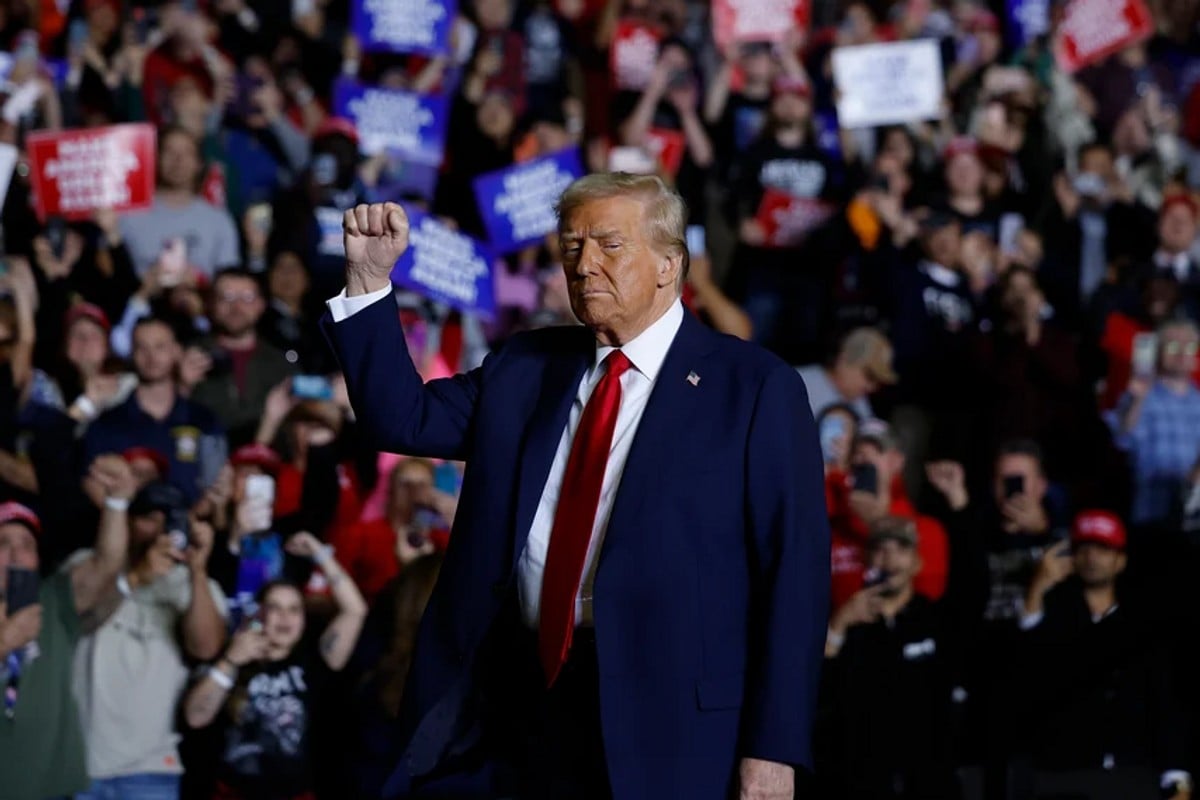
He's been labelled a threat to democracy, a racist, a misogynist and a fascist and has multiple criminal indictments, but Donald Trump is heading back to the White House.
The Associated Press reports that Kamala Harris, the Democratic nominee, has called Donald Trump to concede defeat. She will speak publicly on the matter imminently.
Trump claimed victory for the Republicans on Wednesday evening. While he has already won the majority in the US Senate and the popular vote, the count is still out for the House of Representatives which has become an important one to watch.
It will either serve as the sole Democratic check on the incoming Trump presidency, or deliver a united Trump government.
The race for the White House was on a razor's edge right until the big day, with the candidates tied at 48 per cent each for the popular vote, according to the final New York Times/Siena College national poll on October 25.
This campaign trail has not been a "typical one" — Harris said so herself last week.
Watch: What it's like at a Donald Trump and Kamala Harris rally. Post continues below.




























































































